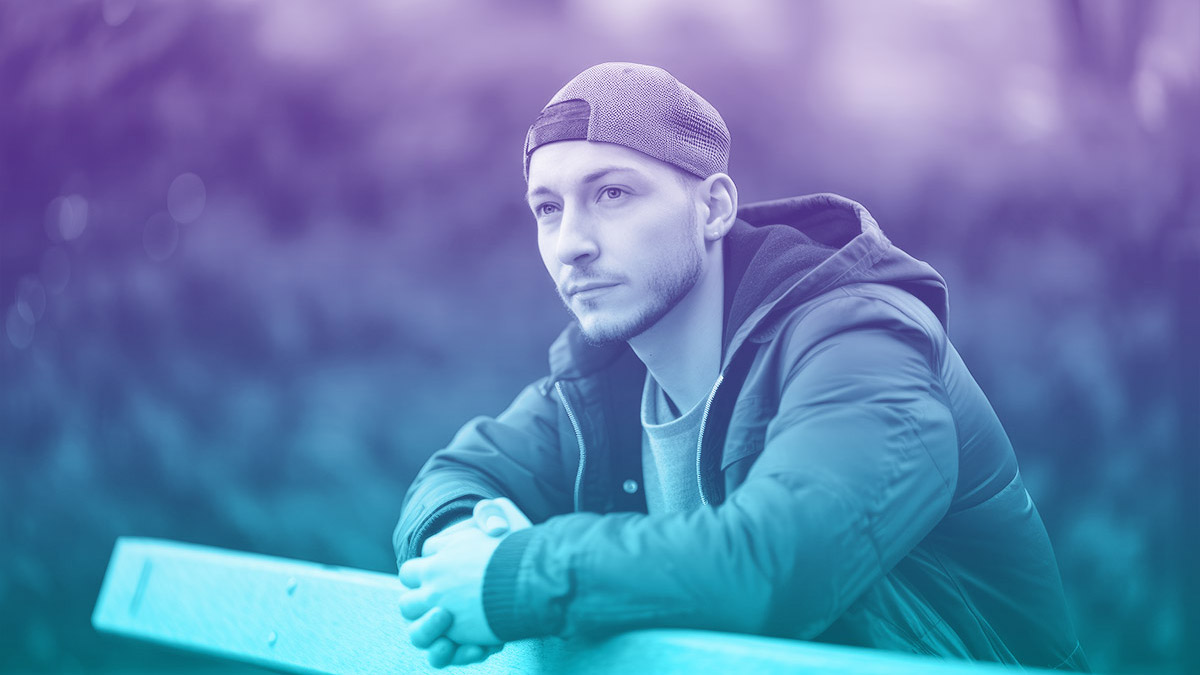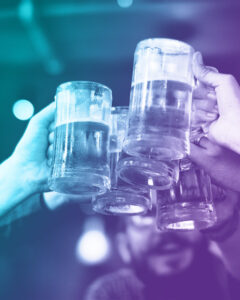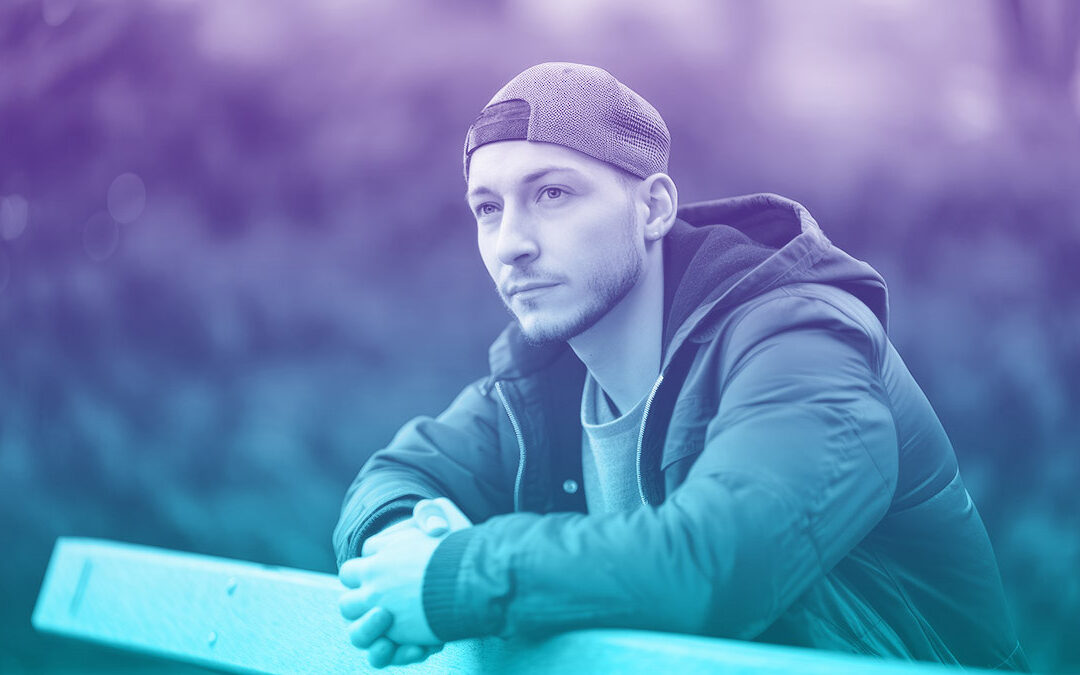Feeling Guilty After Drinking
You started drinking when you were young. Your dad gave you your first beer at 15, and you have been hooked ever since. There have been nights of blurry memories and more hangovers than you care to admit, but all in all, drinking has been a great stress relief and a fun way to unwind.

You started drinking when you were young. Your dad gave you your first beer at 15, and you have been hooked ever since. There have been nights of blurry memories and more hangovers than you care to admit, but all in all, drinking has been a great stress relief and a fun way to unwind.
You are getting older now, married with two little ones and one on the way. Drinking is still your stress reliever, and some days you drink more than intended. But your wife has always been understanding since you help around the house and with the kids. Lately, your nights of drinking more than intended have been more frequent, and your wife is starting to get more irritated with you. You wake up each morning feeling guilty for not being helpful, but you can’t seem to stop yourself from drinking. After a few months, she finally leaves, taking the kids and leaving you in a guilty and shameful state, telling you to get it together if you ever want to see your kids again. How did you get here, how did things get this bad?
In Hillsborough County 2022, 35% of teens in high school reported using alcohol, while 11.6% reported experiencing a blackout. Clean Recovery Centers understands that drinking in youth can lead to an alcohol use disorder later in life. Our program utilizes a one-of-a-kind, three-phase approach to treatment that can address both alcohol use disorder and mental health. Today’s blog will be discussing guilt and alcohol, and what the correlation is between the two.
The Areas of the Brain That Are Affected by Alcoholism
Alcohol affects different areas of the brain and can even cause damage over time. The hippocampus is the area in the brain that controls memory. During nights of heavy drinking, the hippocampus cannot create new memories and has difficulty recalling memories. This is especially true when alcohol poisoning is happening, as blackouts are common. In a full blackout, memory is not able to be recovered, and it will feel as if the night never happened. A partial blackout – sometimes called a grayout – is more fragmented, and certain memories can be recalled, but not all.
Drinking alcohol also affects the frontal lobes, which are responsible for motor function, personality, logical thinking and decision making, and expression of emotion. Some people note that alcohol makes them feel happier or more outgoing. Personality traits and emotions can become amplified by alcohol. If you were in a good mood before drinking, those feelings will become more intense when drinking begins. But if you are in a stressed or depressed mood, these emotions will amplify and can cause mental distress.
Reasons People Experience Drinker’s Guilt
 There are many reasons people can experience guilt after drinking. When we drink alcohol in excess, judgment becomes hindered. Taking care of our responsibilities no longer seems like a priority at that moment. Watching the children, cleaning up the kitchen after your spouse makes dinner, and not being present physically or mentally can create feelings of guilt the next day. When a drink here and there turns into problem drinking or alcoholism, guilt will build as we stop taking care of loved ones and ourselves.
There are many reasons people can experience guilt after drinking. When we drink alcohol in excess, judgment becomes hindered. Taking care of our responsibilities no longer seems like a priority at that moment. Watching the children, cleaning up the kitchen after your spouse makes dinner, and not being present physically or mentally can create feelings of guilt the next day. When a drink here and there turns into problem drinking or alcoholism, guilt will build as we stop taking care of loved ones and ourselves.
Another reason behind guilt is alcohol is already a problem you can’t seem to stop. Drinking has become a way to deal with stress or depression, and taking it away all of a sudden can feel like the rug was pulled from under your feet. Feelings of guilt come from wanting to drink knowing you should not, sneaking a drink when you know it’s wrong, and the weight of lying to a loved one or getting caught. This type of guilt can lead to binge drinking sessions out of pure defeat, leading you back into the grips of alcohol use disorder.
What Is Hangxiety?
Hangxiety is a slang term used to describe the panic someone feels after a night of blackout drinking. When the body is recovering from alcohol, a hangover occurs and can cause symptoms of anxiety. Paired with fragmented or no memory recollection, we are left to piece together what happened, where we were, and who we were with. Hangxiety can usually be cured by eating a healthy meal, catching up on rest, and drinking water or an electrolyte drink to curb alcohol dehydration. Talking with people who were with you can help relieve hangxiety as well.
Guilt can play a role in developing hangxiety the next day also. Drinking more than you wanted, being out later than expected, or even saying or doing things you didn’t mean can result in waking up with hangxiety the next day.
Relationship Between Drinking Alcohol and Anxiety
One night of drinking and waking up with hangxiety does not necessarily equate to an alcohol use disorder. Many people begin drinking to help manage their anxiety, and in the beginning, it may seem to help. Over time, the brain and body begin to depend on alcohol, and chemical levels adjust for its presence. When alcohol is taken away, the brain works to restore balance. This triggers an overwhelming chemical response that can increase symptoms of anxiety. Even after drinking again, anxiety symptoms can still be present and cause distress. Combine that with guilty feelings for drinking in the first place, and mental health is sure to deteriorate.
Knowing the Signs of an Alcohol Use Disorder
Feeling guilty after drinking on more than one occasion can be an indicator of an alcohol use disorder. Some other signs that alcohol dependency is present include:
- Experiencing withdrawal symptoms between drinking sessions
- Wanting to stop drinking but being unable to
- Poor job or school performance
- Losing interest in activities and hobbies
- Relationship dysfunction
- Financial stresses
Depending on the stage of alcoholism you or a loved one may be in, these symptoms may be minor or severe. If alcohol seems to be putting a barrier between you and life or if you feel constant guilt for drinking, it is time to start talking about help.
Treatment Options for Alcohol Use Disorder
Feeling guilty for drinking puts the weight of the world on your shoulders. Constantly thinking about what you could be doing or should be taking care of will only eat away at your mental and physical health. It is perfectly okay to not be okay, and seeking treatment for alcohol use disorder is the first step in the right direction. Connecting with peers, building healthy coping skills, and rediscovering yourself will open the doors to a new and fulfilling life – one that alcohol could never give you.
If you or someone you love is coping with guilt from alcoholism, look no further for help. Clean Recovery Centers provides not only quality alcohol addiction treatment, but also has housing at each facility that is certified by the Florida Association of Recovery Residences (FARR). We offer a safe place to heal and give you peace of mind to focus on yourself and your recovery. Call us today at (888) 330-2532 to learn more about our treatment options.
FAQs About Feeling Guilty After Drinking
What to do when feeling guilty for drinking too much?
The best way to handle guilty feelings after drinking too much is to communicate. Talking with a partner, loved one, or trusted friend can help give insight into guilt and what to do next. Hydrating and filling your body with nutritious foods can also decrease things like hangxiety.
How long does feeling guilty about drinking alcohol last?
There is no timeline for guilt to go away after drinking. Alcohol withdrawal sets in 8 hours after the last drink, and can continue for as long as weeks. Feelings of guilt can be felt throughout this whole time or not at all, as every person is different.
How long does hangxiety last?
Hangxiety can last for days if not addressed. Eating a healthy meal, rehydrating, getting proper rest, and talking with a trusted friend will help hangxiety symptoms go away.


